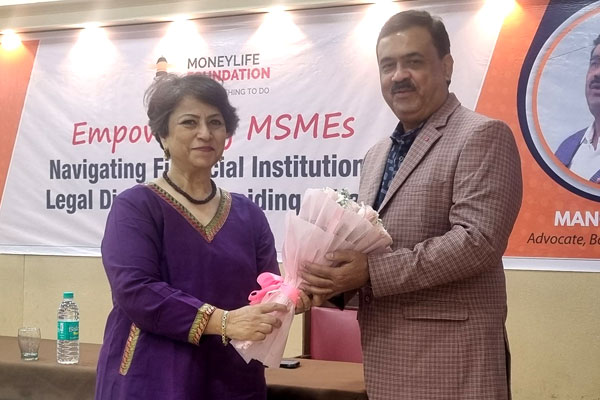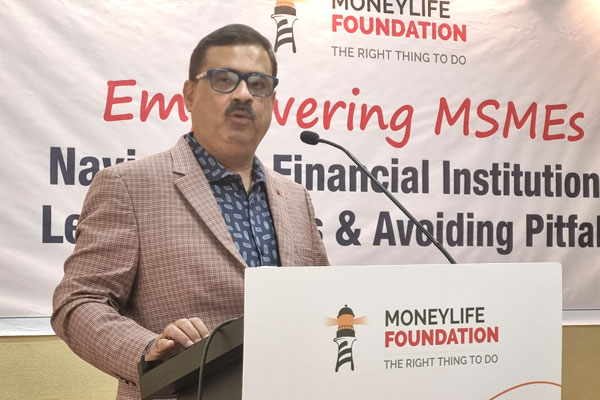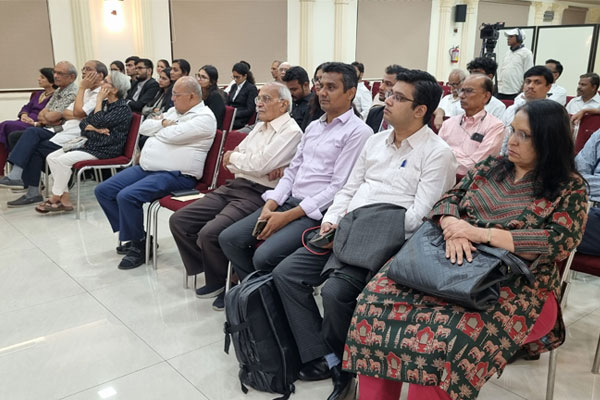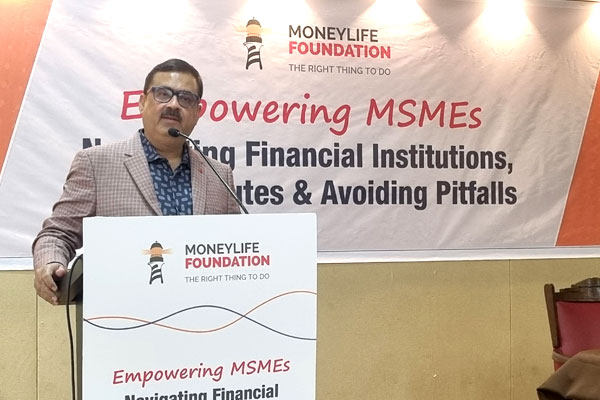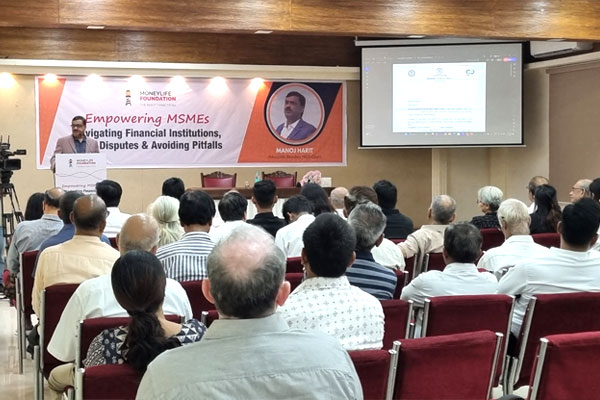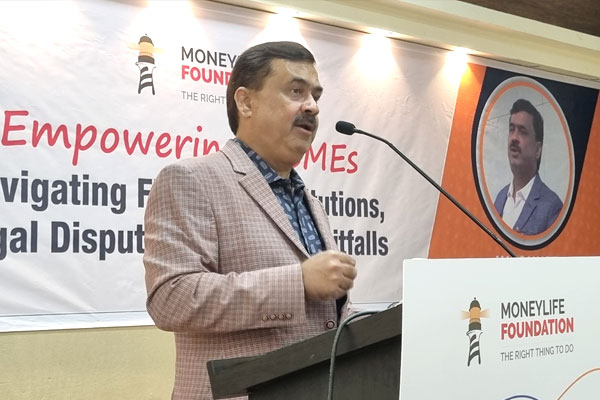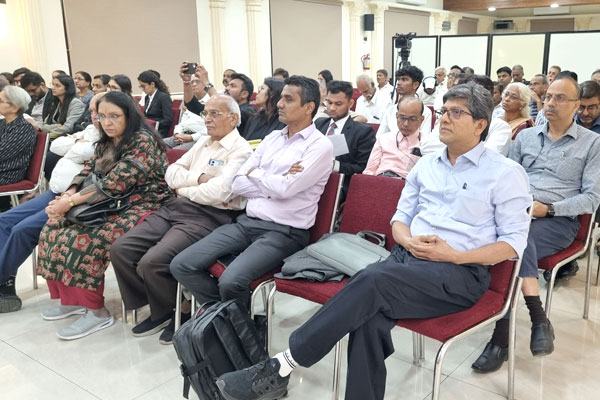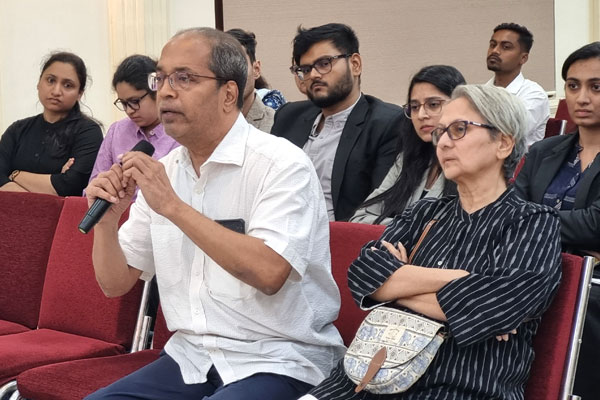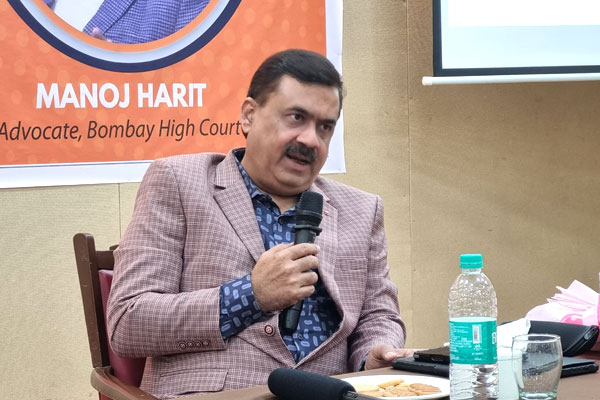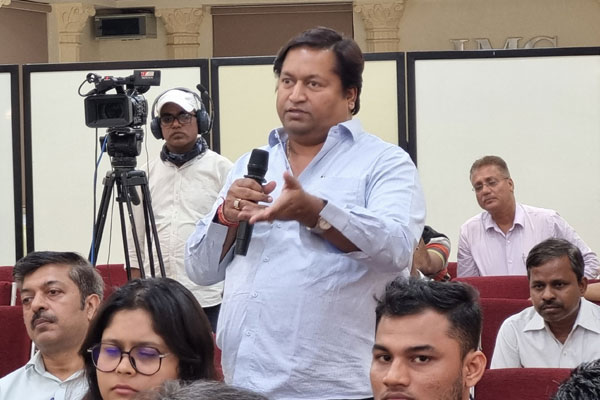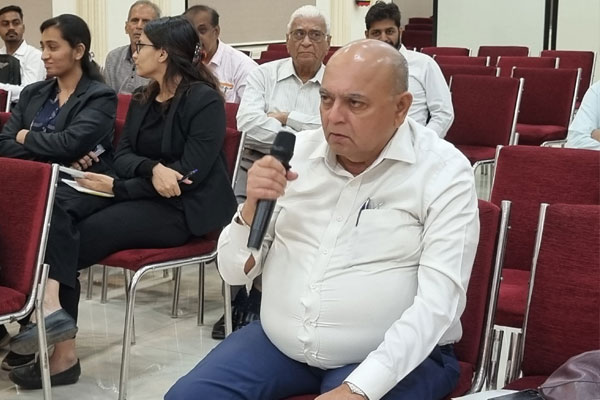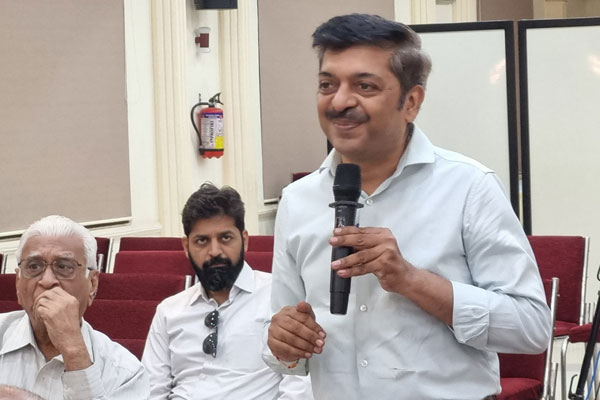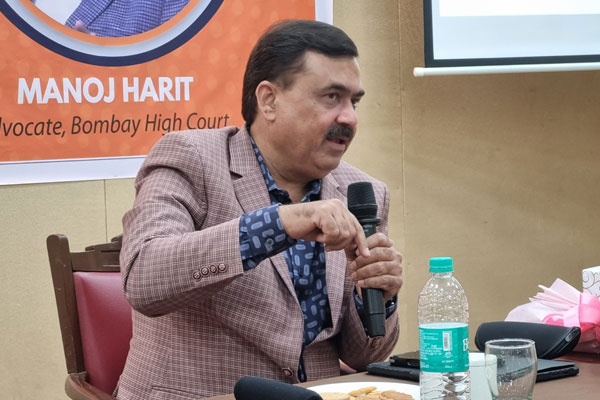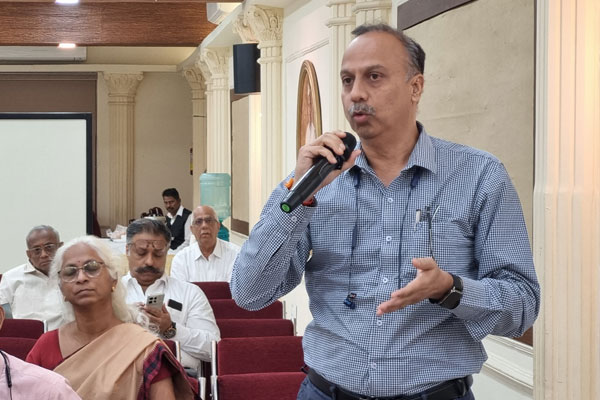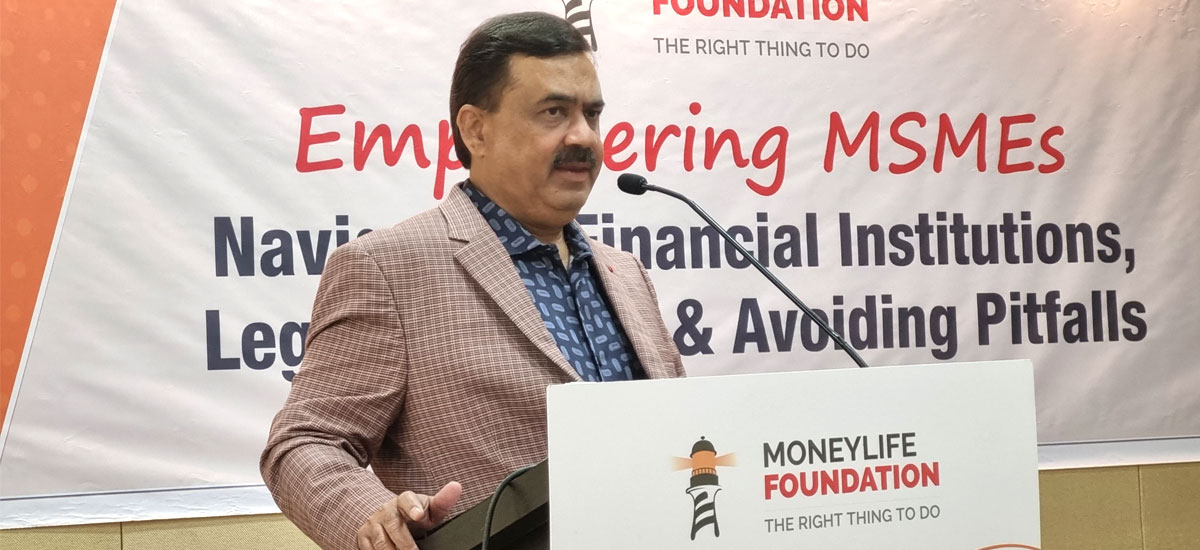
“Legal issues don’t arise on day one. They build up over time due to small and big missteps that MSMEs make while dealing with financial institutions. Understanding these risks early can save businesses from financial distress and legal entanglements,” said advocate Manoj Harit, a distinguished legal expert who practices at the Bombay High Court and has decades of experience representing micro, small and medium enterprises (MSMEs) in financial and legal disputes.
He was addressing an audience at a special seminar conducted by Moneylife Foundation recently. The seminar was an effort by the Foundation to provide MSME owners with the tools and knowledge to protect their businesses from common financial and legal traps.
Advocate Harit began his presentation by stressing the importance of understanding the potential pitfalls of financing and how these issues, though often avoidable, can quickly escalate into legal disputes if entrepreneurs are not careful from the outset. He drew attention to the fact that many MSMEs fail to address key financial aspects early in their operations, ultimately leading to legal troubles and financial instability. He explained that entrepreneurs are often eager to take loans without fully grasping the consequences, which can result in severe financial implications down the line.
One of the primary issues Adv Harit discussed was the tendency among MSME entrepreneurs to underestimate their funding needs. He explained that many entrepreneurs seek loans based on overly optimistic projections, assuming they can ‘make do’ with less capital initially or that banks will later increase their loan limits once their projects are up and running. However, Adv Harit pointed out that inadequate funding is one of the leading causes of MSME defaults.
“Entrepreneurs often fail to ensure they have sufficient capital before embarking on their business ventures. They approach lenders with a plan that may look feasible on paper but doesn’t match the real financial needs of their business. This leads to cash flow issues and ultimately defaults,” he warned.
He advised business owners to secure the appropriate amount of funding upfront, emphasising that starting a business with inadequate financial resources can cause a ripple effect of problems that can be difficult to recover from.
Advocate Harit also highlighted the common mistake of mortgaging personal assets, particularly homes, to secure business loans. He explained that while banks and other lenders often ask for collateral to secure loans, many MSME owners, desperate for financing, often agree to put up their homes or other personal property as collateral. He stressed that under RBI norms, only up to 50% collateral is required for industrial financing, and even then, alternative forms of collateral can be considered.
“One of the most dangerous mistakes entrepreneurs make is agreeing to put up their homes as collateral. While it might seem like a necessary step to secure funding, it puts personal finances at risk. Entrepreneurs should explore all other options and avoid rushing into deals that might later jeopardise their homes and personal wealth,” Adv Harit said.
One of the most important lessons Adv Harit imparted during the session was the need to carefully scrutinise loan documents before signing them. He illustrated how even slightly hidden terms, such as daily interest rates instead of monthly or quarterly rates, can lead to disastrous outcomes for entrepreneurs. He shared examples from his experience as a legal professional, where entrepreneurs were unknowingly charged exorbitant penalty fees or interest rates that exceeded what they originally agreed to.
He cited one particularly egregious example where a borrower was charged 30% interest on the entire loan amount instead of just the overdue portion, leading to the borrower’s financial ruin.
Adv Harit emphasised that entrepreneurs must take the time to carefully read every clause in loan agreements and seek legal advice to ensure they do not agree to unfair or hidden terms that could later cost them significantly.
“The assumption that banks will always act in good faith is one of the most dangerous misconceptions entrepreneurs have. Often, the bank’s interests are more aligned with their own financial gains than with your business’ success. It is critical to read loan documents carefully and question any terms that seem unfavourable,” he cautioned.
Another key issue Adv Harit highlighted was the lack of proper written communication between MSMEs and their lenders. He explained that many entrepreneurs rely on verbal agreements or informal discussions with their bank representatives, which often leads to confusion or disputes when things go wrong. He urged entrepreneurs to document every communication with their lenders, including loan negotiations, repayment schedules and any issues arising during the loan agreement.
“In the event of a dispute, written communication is your strongest asset. Without proper documentation, it becomes incredibly difficult to defend your position. Always ensure that any discussions or agreements with your lender are put in writing,” he said.
Throughout the session, Adv Harit provided practical steps MSMEs should take to protect themselves. These included:
- Securing adequate funding upfront to avoid cash flow issues.
- Maintain proper records and ask for the full set of documents from lenders.
- Creating financial buffers to handle lean periods.
- Carefully reviewing loan agreements and seeking professional advice.
- Keeping written communication with lenders regarding any changes or loan terms or repayments issues.
He also emphasised the need for early intervention if financial difficulties arise. Reaching out to lenders for assistance or renegotiating terms at the earliest stage of difficulty is far more beneficial than letting debts accumulate.
As the seminar concluded, Adv Harit also touched upon the legal options available to MSMEs once they find themselves in a difficult financial position. He talked about the importance of legal strategies, such as utilising Reserve Bank of India (RBI) guidelines for MSME rehabilitation and how timely legal intervention can prevent businesses from losing everything.
He concluded by urging entrepreneurs to always consult with a lawyer when dealing with major financial or legal issues rather than relying solely on financial advisors or accountants.
“It’s easy to get caught up in the optimism of entrepreneurship, but the legal and financial realities are just as important to your business’s survival. By planning ahead, being diligent with paperwork, and knowing when to seek legal advice, MSMEs can better navigate the challenges they face,” Adv Harit concluded.


